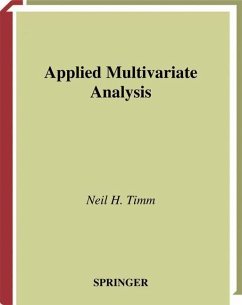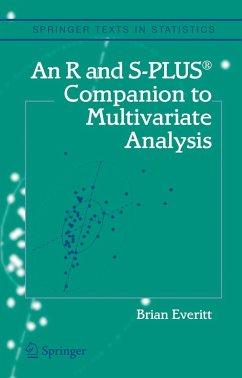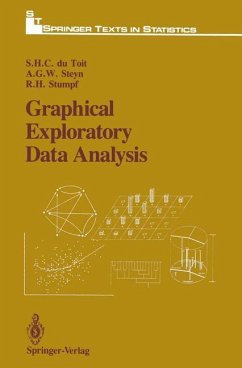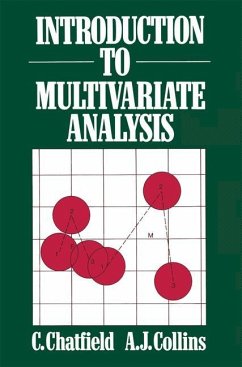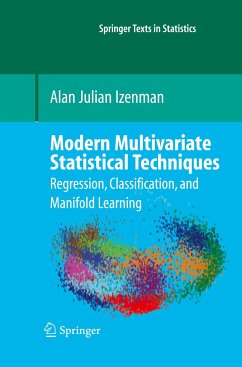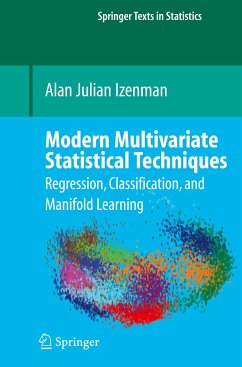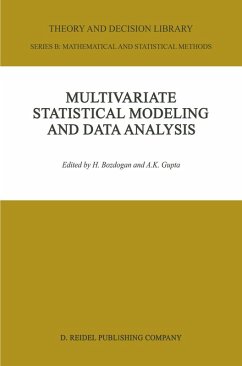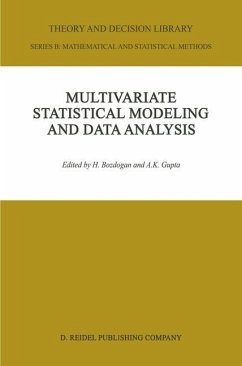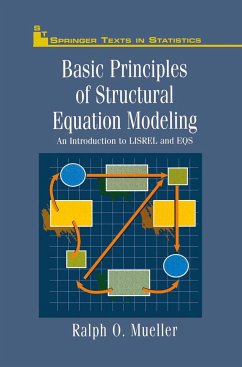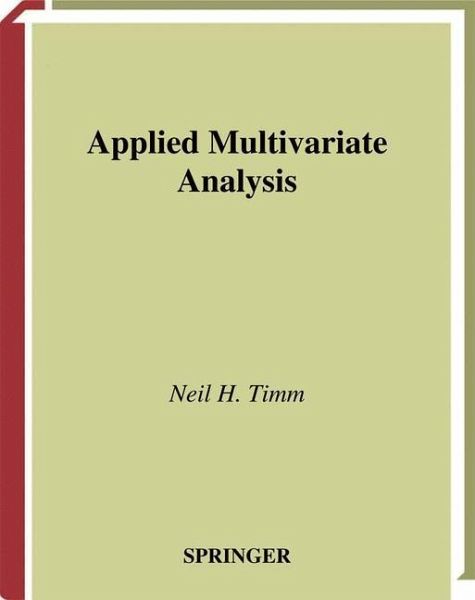
Applied Multivariate Analysis
Versandkostenfrei!
Versandfertig in 1-2 Wochen
69,99 €
inkl. MwSt.
Weitere Ausgaben:

PAYBACK Punkte
35 °P sammeln!
Univariate statistical analysis is concerned with techniques for the analysis of a single random variable. This book is about applied multivariate analysis. It was written to p- vide students and researchers with an introduction to statistical techniques for the ana- sis of continuous quantitative measurements on several random variables simultaneously. While quantitative measurements may be obtained from any population, the material in this text is primarily concerned with techniques useful for the analysis of continuous obser- tions from multivariate normal populations with linear structure....
Univariate statistical analysis is concerned with techniques for the analysis of a single random variable. This book is about applied multivariate analysis. It was written to p- vide students and researchers with an introduction to statistical techniques for the ana- sis of continuous quantitative measurements on several random variables simultaneously. While quantitative measurements may be obtained from any population, the material in this text is primarily concerned with techniques useful for the analysis of continuous obser- tions from multivariate normal populations with linear structure. While several multivariate methods are extensions of univariate procedures, a unique feature of multivariate data an- ysis techniques is their ability to control experimental error at an exact nominal level and to provide information on the covariance structure of the data. These features tend to enhance statistical inference, making multivariate data analysis superior to univariate analysis. While in a previous edition of my textbook on multivariate analysis, I tried to precede a multivariate method with a corresponding univariate procedure when applicable, I have not taken this approach here. Instead, it is assumed that the reader has taken basic courses in multiple linear regression, analysis of variance, and experimental design. While students may be familiar with vector spaces and matrices, important results essential to multivariate analysis are reviewed in Chapter 2. I have avoided the use of calculus in this text.






